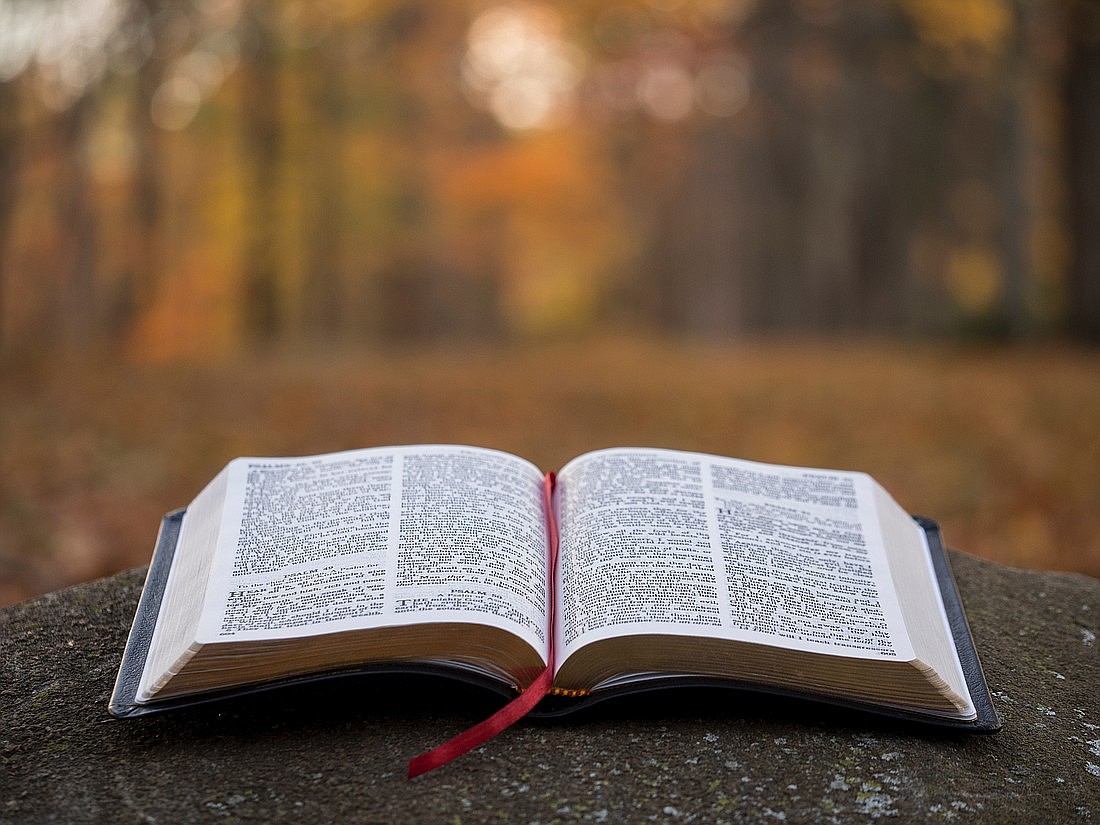July 19, 2023 at 8:48 a.m.
A mixed bag of good and bad
In the Gospel this weekend, we have a trio of parables from our Lord. All three of them give us insights or snapshots into the nature and purpose of God’s Kingdom: “the Kingdom of Heaven is like …” Two of the parables are about growth (the mustard seed and the yeast) and one about the tensions and the sowing by the evil one of bad seed among the good.
As space is limited, let us explore together the parable about the wheat and the weeds. To do this, we need first to have a brief lesson in botany! The weed referred to in the Gospel is actually named in the original language of the New Testament: “zizania.” It is a real plant or weed, lolium temulentum, in Latin. It was a weed well known and also dreaded by farmers at the time of Jesus, as it could spoil the whole crop of wheat that had been sown in a field.
There were many problems with this pernicious weed. First of all, it looked very much like the real wheat that had been sown. Only toward harvest time could it be properly distinguished from the genuine wheat, and even then only by a practiced eye. The roots of this weed also intertwined with the roots of the real wheat and so it was very difficult to remove without damaging the crop. If that was not bad enough, if seed from the ears of this weed became mixed with the regular wheat, the results were disastrous, as the seeds are toxic. In humans they can cause giddiness, difficulty in speaking, vomiting and even death!
With our botany lesson over, we can see some very clear lessons from our Lord’s parable about the weeds and the wheat. First of all, we notice the deliberate intention of the enemy in sowing the weeds. As our Lord says in his explanation of the parable, the intention of evil is to cause others to sin. Evil is indeed intentional and like a virus, and a highly skilled one at that! We need to take evil seriously and to remember that it is often not just a matter of chance, but of an intentional purpose and action. In turn, we need to be intentional and deliberate in combating evil, remembering, for example, those famous words: all that is needed for evil to prosper, is for the good person to remain silent.
A second lesson is that despite our first lesson above, we need great care in distinguishing good and evil and certainly in judging actions as good or evil. Sometimes evil can look like good, or good intentions might lead to bad actions. I remember reading a story from the Second World War. A French village had been liberated from the Nazis, and the villagers dragged out several people who were seen as Nazi collaborators. The villagers, after all their sufferings, intended to hang these perceived collaborators. At the last minute, two Allied airmen, who had been sheltered by the accused collaborators appeared. They explained that these so-called collaborators had run, at great personal risk, an underground escape network for Allied troops and for Jews throughout the war. Yes, care is needed in judging, not least because an expert eye and one freed from preconceptions, is needed in distinguishing wheat from weeds, good from bad.
A further lesson is that communities, whether a society or the Church, are a mix of good and bad, wheat and weeds. In fact, each person is often divided in the same way: a mix of wheat and weeds. As Pope Francis likes to remind us, the Church is a mix of saints and sinners. It is not a museum of saints, but rather a school of sinners striving to become saints. There may be opportunities to do some “weeding,” but great care is needed, not least so as to avoid damaging the wheat! The history of the Church is full of well intentioned, but also perhaps overzealous attempts at some form of weeding. The results have often not been beneficial.
The parable also is about patience and timing. The harvest will indeed separate out the weeds from the wheat; we can be sure of this. In the meantime, before this harvest, and perhaps stretching our parable a bit, there is time for change. We can remember saints such as St. Paul and his persecution of the Church before his conversion, or the repentant thief (an amazing example of a last minute change from a weed to wheat.)
At the end of each day, it is a wonderful spiritual exercise to review the day and to see how much wheat and how many weeds there have been. Where we see those weeds, perhaps with God’s help, we can root out any such weeds before they become established. Let us not forget that the Sacrament of Confession is really a great exercise in weeding: so, let us make use of it before the harvest!
- Tanzania’s Cardinal Pengo remembered as giant of faith, a ‘towering presence’ for Africa
- Bishops urge prudence, prayer, invoke Guadalupe’s protection as violence erupts in Mexico
- St. Francis’ relics open to public for first extended veneration in 800 years
- ‘We will grow in wisdom, holiness together,’ new bishop of Tucson, Ariz., tells faithful
- Pope renews ‘heartfelt appeal’ for ‘immediate ceasefire’ in Russia-Ukraine war
- Full text: Pope Leo XIV’s Angelus address given February 22, 2026
- God offers new possibilities, not prohibitions, with his invitation to love, pope says
- Find comfort, strength in Eucharist, pope tells attendees at LA Religious Education Congress
- Pope Leo XIV tells priests not to use AI to write homilies or seek ‘likes’ on TikTok
- Historical novel pitches Christian compassion against ideologies of hatred








Comments:
You must login to comment.